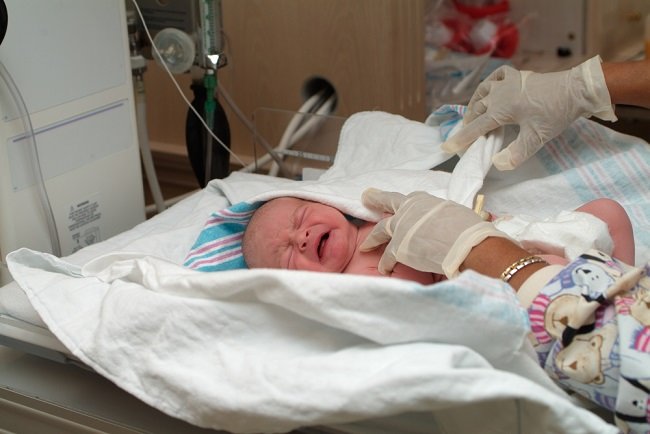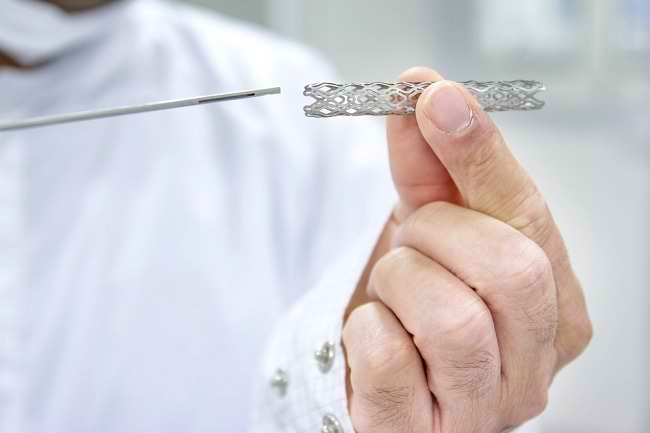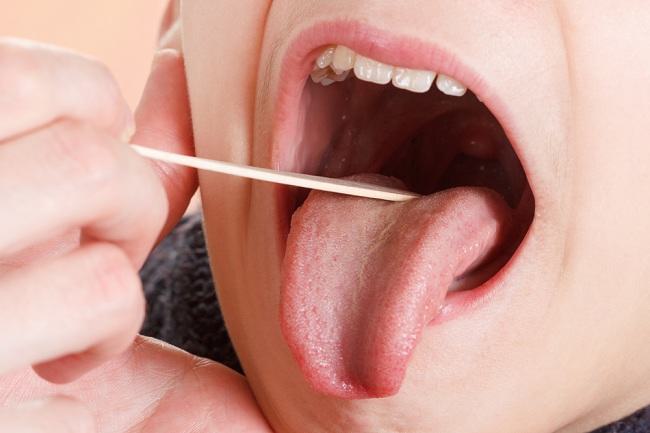Chlorambucil or chlorambucil is a drug used to treat chronic lymphocytic leukemia and lymphoma, including Hodgkin's lymphoma and non-Hodgkin's lymphoma. This drug should not be used carelessly and must be in accordance with a doctor's prescription.
Chlorambucil is an alkylating agent chemotherapeutic drug. This drug works by interfering with the development of DNA and the formation of RNA from cancer cells. That way, the cancer cells will stop growing.

Chlorambucil trademark: -
What is Chlorambucil
| group | Prescription drugs |
| Category | Chemotherapy or anticancer drugs |
| Benefit | Treats chronic lymphocytic leukemia and lymphoma. |
| Consumed by | Mature |
| Chlorambucil for pregnant and lactating women | Category D: There is positive evidence of risks to the human fetus, but the benefits may outweigh the risks, for example in dealing with life-threatening situations. It is not known whether or not chlorambucil is absorbed into breast milk, so it should not be taken while breastfeeding. |
| Drug form | Tablet |
Warning Before Taking Chlorambucil
Chlorambucil should only be taken according to a doctor's prescription. There are several things to consider before undergoing treatment with this drug, including:
- Tell your doctor about any allergies you have. Chlorambucil should not be given to patients who are allergic to this drug, busulfan, bendamustine, or cyclophosphamide.
- Tell your doctor if you have or have had seizures, head injury, brain tumor, gout, liver disease, blood disorders, or kidney disease, including kidney stones.
- Tell your doctor if you are pregnant, breastfeeding, or planning a pregnancy. Use effective contraception while on treatment with chlorambucil.
- Tell your doctor if you have or have recently had radiotherapy or chemotherapy with other drugs.
- As much as possible, avoid being close to people with infectious diseases that are easily contagious, such as the flu or measles, while undergoing treatment with chlorambucil, because this drug can make it easier for you to catch these infectious diseases.
- Talk to your doctor if you plan to get vaccinated while on treatment with chlorambucil.
- Tell your doctor if you are taking certain medications, supplements, or herbal products.
- Immediately see a doctor if you have an allergic reaction to the drug, serious side effects, or an overdose after taking chlorambucil.
Dosage and Instructions for Use of Chlorambucil
Chlorambucil tablets will be given by a doctor. The dose and duration of treatment will be determined based on the patient's weight, the type of cancer suffered, and the patient's response to treatment. Here is the explanation:
Condition: Chronic lymphocytic leukemia blood cancer
- The initial dose is 0.15 mg/kgBW, per day. The daily dose should not be more than 0.1 mg/kgBW if the leukocyte level is low. The maintenance dose is 0.03–0.1 mg/kg body weight per day.
Condition: Hodgkin's Lymphoma
- The dose is 0.2 mg/kg, per day, for 4–8 weeks. The dose should not be more than 0.1 mg/kgBW if the leukocyte level is low. The maintenance dose is 0.03–0.1 mg/kgBW, per day.
Condition: Non-Hodgkin's Lymphoma
- The initial dose is 0.1 mg/kg, per day, for 4–8 weeks. The dose should not be more than 0.1 mg/kgBW if the leukocyte level is low. The maintenance dose is 0.03–0.1 mg/kgBW, per day.
Condition: Waldenstrom's disease macroglobulinemia or lymphoplasmacytic lymphoma
- The initial dose is 6–12 mg, taken daily for low leukocyte counts. Maintenance dose 2–8 mg, taken daily.
How to Take Chlorambucil Correctly
Follow the doctor's advice and read the instructions on the medicine package before taking chlorambucil. Do not reduce or increase your dose, or take your medication more often than your doctor recommends.
Chlorambucil tablets can be taken before meals or 3 hours after meals. Swallow the medicine whole with a glass of water, do not chew or crush the tablet.
During treatment with chlorambucil, patients are advised to drink plenty of water to prevent side effects.
Take chlorambucil regularly at the same time every day for maximum treatment effect. Do not stop taking the drug, except on doctor's instructions.
If you forget to take chlorambucil, take the drug immediately if the break with the next consumption schedule is not too close. If it is close, ignore it and do not double the dose.
The use of chlorambucil can weaken the immune system and make the patient more susceptible to infectious diseases. Carry out regular check-ups with the doctor so that the progress of the condition and the effectiveness of the drug can be monitored.
Store chlorambucil tablets in a closed container in a cool room. Do not store it in a humid place or in direct sunlight. Keep this medicine out of reach of children.
Chlorambucil Interactions with Other Drugs
The use of chlorambucil with other drugs can cause several drug interactions, such as:
- Increased risk of toxic effects of each drug when used with other anticancer drugs, such as cisplatin, busulfan, or carboplatin
- Increased risk of serious and fatal infectious disease if used with immunosuppressant drugs, such as baricitinib, certolizumab, or fingolimod
- Decreased effectiveness of live vaccines, such as BCG vaccine or influenza vaccine
Chlorambucil Side Effects and Dangers
Some side effects that may appear after taking chlorambucil are nausea, vomiting, diarrhea, or stomach pain. Check with your doctor if these side effects don't go away or get worse.
See your doctor right away if you have an allergic reaction to a drug or a more serious side effect, such as:
- Easy bruising, bloody stools, or bloody urine
- Menstrual cycle disorders, one of which is not having menstruation
- Severe thrush
- Infectious disease, which can be characterized by symptoms such as fever, chills, swollen lymph nodes, or sore throat that doesn't get better
- Jaundice, severe abdominal pain, loss of appetite, or severe nausea and vomiting
- Seizures
- Muscle stiffness, muscle weakness, or twitching
- Hallucinations, confusion, or mood disturbances
- Bone marrow damage that can cause anemia, a low white blood cell count (leukopenia), or a low platelet count (thrombocytopenia)









